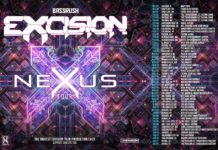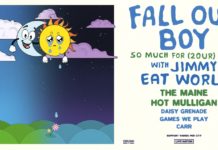A lot of mental illnesses have exacerbated or risen in prevalence due to the pandemic that hit during 2020, and a dangerous one is Depression. According to BBC’s news report, 1 in 5 people have had depressive symptoms this 2020 compared to last year’s 1 in 5, a survey indicated. 3,500 patients followed up with these symptoms and 20% had met the criteria for depression. Many of the subjects had tagged the extensive quarantine as the main catalyst for their depression, and others claimed the isolation that came from it worsened the current diagnosis.
Although many treatments are available, such as medicine and therapy, there is an alternative that has been found to ease symptoms of depression, especially in our isolated situation. CBD has been known to cure many aches and pains, increase appetite, and even lessen episodes of epilepsy. What most people missed was the fact it can ease symptoms of mental illnesses too, like anxiety, PTSD, and depression. So, should you take CBD hemp strains for your depression? Absolutely, and here’s why.
All About CBD
Before diving into how CBD can help your depressive episodes, let’s find out what it is first. CBD is short for cannabidiol, a compound found in the cannabis genus of plants. It is one the most popular out of 112 Phyto cannabinoids, with THC being second. There are also differences between these two sister compounds, very important differentiators to take note of while you’re using it.
First, cannabidiol is found to be more than half of the cannabinoid count in hemp. It also has other Phyto cannabinoids, but THC is among the least (less than 2%). This is the reason hemp is the main source of cannabidiol-derived products. Cannabidiol is most concentrated in flowers strains from hemp, or with its seeds, stalks, and leaves as well. Upon manufacturing the formula, THC is removed completely, or reduced to very small amounts.
Why do customers and CBD companies alike have a common aversion to THC? Tetrahydrocannabinol is the compound necessary to induce psychoactive effects in the user. Meaning, it can get them high and the risk of overdose is present. Customers that use cannabidiol products chose to be of sound mind while reaping the benefits. Not to mention THC and its main source of marijuana is illegal in some states across the US.
THC is a schedule 1 substance. Thus, it’s a controlled substance by the FDA and it is illegal for growing, using, and selling in said states. Cannabidiol, on the other hand, is a schedule 5, giving it more freedom ever since the Farm Bill passed in 2018. It is now legal to grow, albeit only for industrial and recreation purposes.
How Does CBD Help With Depression?
It is a fact that CBD is still behind its scientific studies compared to its social and subjective testimonies online. These said social and subjective testimonies aren’t enough to prove its effectiveness, however. The lack of research was due to its restriction before 2018, leaving only researchers outside of the US to study it. Despite that, not every country outside of the US legally allows marijuana to be studied, much less grown, thus impairing its potential discoveries.
However, there are still some studies that indicate its usefulness in mental health. One study is done in New Zealand (Access it here: https://bjgpopen.org/content/4/1/bjgpopen20X101010) with 400 subjects given cannabidiol oil. The results showed great potential in helping depressive symptoms, although due to a high drop-out rate, the results were not very clear. Still, around 44% of the remaining population found significant relief in their illnesses after taking the CBD oil.
From a scientific standpoint, cannabidiol helps the body as a trigger to send messages to the brain. Inside our body is a system called the ECS (Endocannabinoid system), which consists of endo(body)cannabinoids, Phyto(plant/external) cannabinoids, and receptors in the nervous and peripheral system. Normally, the ECS plays a major role in maintaining homeostasis and the balance of hormones in the body. When it goes awry, the ECS releases endocannabinoids to combat it, but sometimes it needs a little extra help from the outside: Phyto cannabinoids and CBD oil.
These cannabinoids make their way to either the receptors found in the nervous system, particularly in the amygdala, hippocampus and part of the thalamus. There, they increase electrical brain activity, block incoming messages that stimulate depressive episodes and stimulate the release of the happy hormone serotonin. Depressive episodes are then minimized and even ceased completely.






